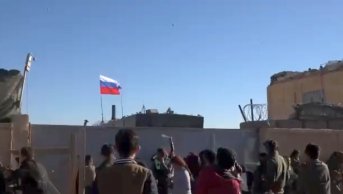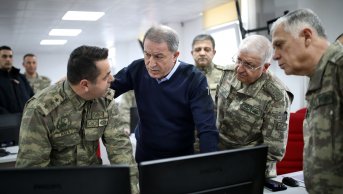Towards a Series of Interventions in Syria

There are several goals for the probable intervention in Syria. First, to send a strong message to Syria indicating that chemical weapons should not be used; second, to make sure that the military outlook in Syria becomes favorable for the opposition; third, to force the parties (particularly the regime of Syrian President Bashar al-Assad) to agree to a political solution, since the regime does not currently favor such a solution because it has performed well on the military front.
The intervention will also most probably lead to a second Geneva conference. The Assad regime will be persuaded to sit with the opposition under equal terms in Geneva. Fourth, the intervention will seek to undermine the military capability of the Assad regime. If Syria's advanced weapons systems remain with either Assad or the opposition, they will pose a threat to Israel in the future. For this reason, if these systems are destroyed, Assad and the opposition groups will have to fight – likely for a long time -- relying only on more basic weapons systems and under equal terms. If this is the main goal, then we need to see that an intervention will prolong the domestic war in Syria rather than ending it.
Syria and its allies have no chance of directly retaliating against the participating Western states, including the US. For this reason, an intervention will make three states in the region the primary targets. Syria and Iran may want to punish Israel, Jordan and Turkey in different ways because they are considered allies of the West in the Middle East.
Therefore, after an intervention in Syria, Turkey will have to face a huge risk. Syria and Iran's typical methods of response do not entail direct attack but there are a few options they may consider. First, they may sponsor destructive terrorist attacks similar to what we saw in Reyhanlı, where a number of civilians will be murdered, people will be provoked and the perpetrator will not be easily identified. Second, they may also organize terror attacks, bombings and operations against Turkish citizens and the political, diplomatic and economic assets of the Turkish state abroad. Third, they may sabotage the Kurdish settlement process via the Kurdistan Workers' Party (PKK) or a new violent group that they may support. Fourth, they may mount efforts to incite sectarian wars and use the Sunni-Shiite divide that has become the new dynamic of the Middle East, the effect of which will spill over into Turkey. Fifth, the long, exposed Turkish-Syrian border may be used for further terror attacks and the infiltration of terrorists into Turkey as well as arms smuggling. The borderline in this area has become blurred after the domestic war in Syria; as a result, no effective control is being maintained in the region. This increases the likelihood of a potential attack. For this reason, it is essential for Ankara to increase security measures along the border with Syria.
Aside from harsh statements, Russia is not expected to oppose to an intervention in Syria. Russian Foreign Minister Sergey Lavrov's remarks and statements confirm this; his statements may be taken as indirect support for the West's potential intervention in Syria. Moscow sees that the goal of the operation is not to oust the Assad regime. As a result, they will simply try to minimize the damage. Like the US, Russia favors a political solution in Syria. Moscow realizes that an intervention will lead to the way to a political solution. For this reason, the interests of the US and the Russian Federation overlap in Syria.
If an intervention is conducted in Syria, it will be followed by other similar moves; it will be the first of a series of operations. The US does not seek an ultimate solution with this initial intervention. We experienced a similar situation in Saddam's Iraq back in the 1990s when the US carried out a number of military operations leading up to the full invasion in 2003. It seems that a similar process will be initiated against Assad's Syria.










